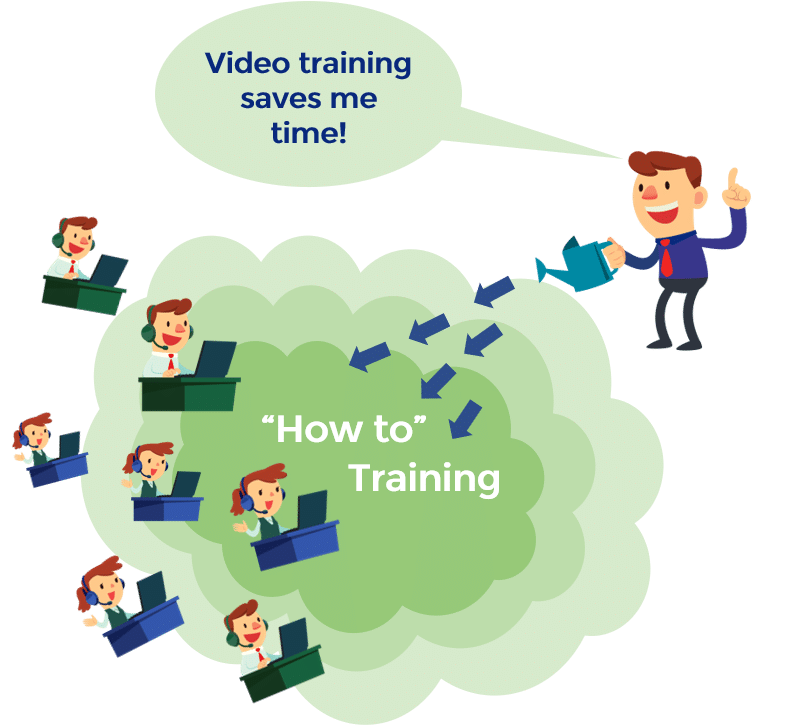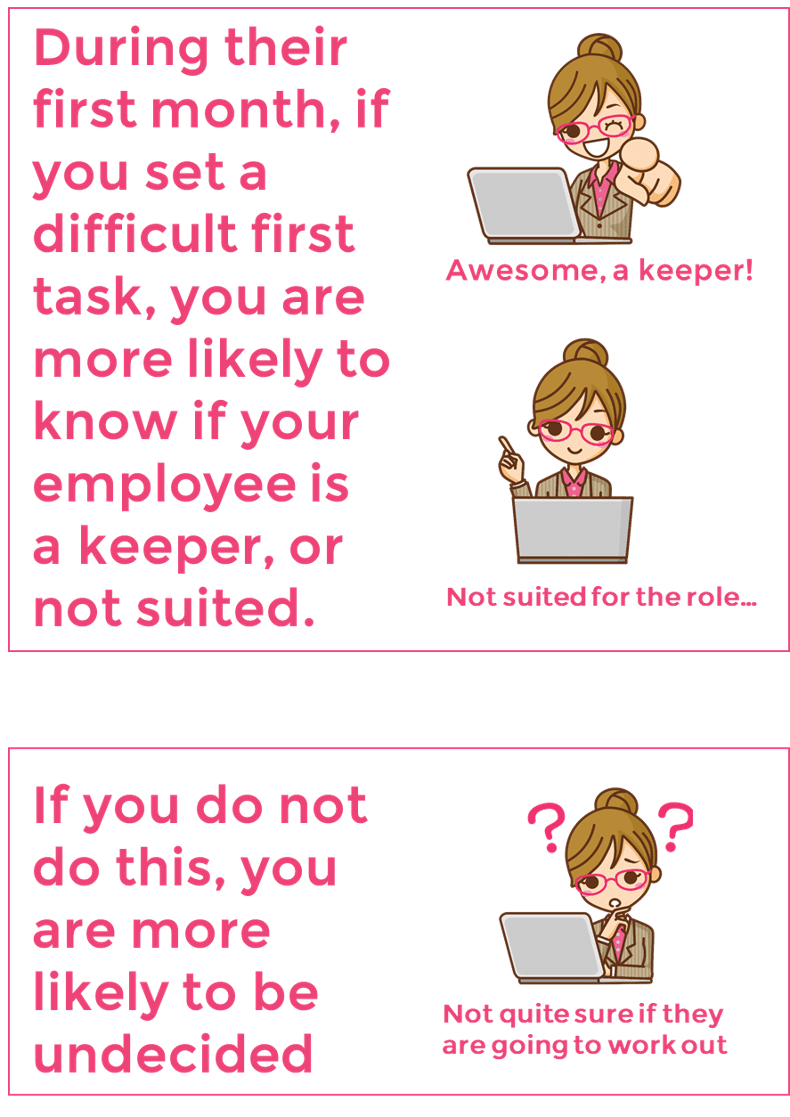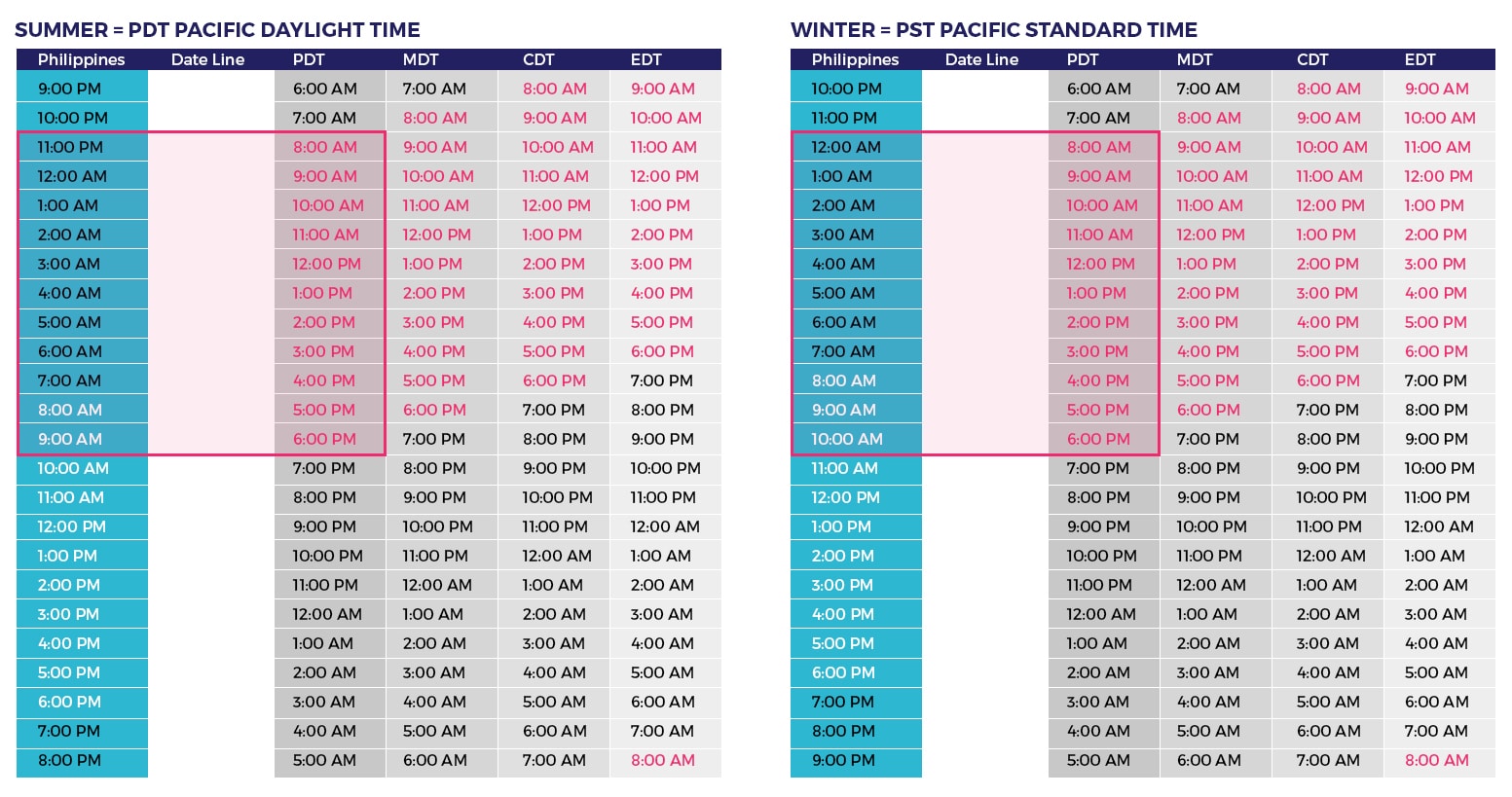Get the Best Out of Your Office Staffing Efforts – Agencies Learnings Managing Virtual Workers
How to Effectively Manage Offshore Virtual Workers, Virtual Assistants
Get Better Staff Retention, Performance, and Happier Workers
Office Staffing Agencies see it all. From clients who consistently have a high staffing turnover to others where, as if by some magic, they seem to mysteriously not only find the right virtual assistant but keep them over the long haul. And do it every time. Is it magic, or is there a formula?
The good news is there is a simple and repeatable process, one that will help you get better employees, retain them longer, and get better performance. Learn from office staffing agencies, learn from their experience and the macro view they have across a wide range of clients.

As if by some magic, some clients that use office staffing agencies seem to mysteriously find the right virtual assistant every time. Others consistently have a high staffing turnover. Is it magic, or is there a formula?
Training

When training your employees, video training saves time and dollars. This is a good virtual assistant productivity management tip.
There’s a secret to this. It’s a really simple secret, yet it’s something most business owners don’t do and certainly don’t understand.
The secret is this, learn how to leverage video training, and you will turbocharge your business.
Screen Recording Video Training
The Killer Business App
When we talk about video training, we are not talking about standing in front of a camera or sitting in front of a webcam and trying to explain how to do things. We are not talking about anything complicated or time-consuming.
We are talking about “screen recording” style video training. We are talking about creating a set of recordings that show the viewer step by step how to do things.
See this example of what we mean by a screen recording video:
It’s just a short video where we show how to get started hiring your first virtual assistant. However, it is also exactly what we mean when we say “screen recording style video training.”
In the example video above, I simply show you how to fill out our ‘Get Started’ form. It took me as long to create the video as it took me to complete the form. That’s all.
If you create this style of training, training that shows a new hire how to do their job step by step, you will find they become productive much faster.
Learn More About Video Training
Difficult First Task

The trick is to find out if your new virtual assistant hire is going to be a winner, as fast as possible.
In our experience both as an office staffing agency and as business owners, there is no sure-fire way of hiring the perfect employee every time.
While our success rate is excellent, better than 80%, sometimes the employee just doesn’t suit.
The trick is to find out if your new hire is going to be a winner as fast as possible.
An ideal outcome is when you can say for sure, “this person is awesome,” by the end of the first month.
An acceptable outcome is when it is clear they are not suited for the role you hired them for. You then let them go with solid reasons and without second-guessing yourself.
The worst outcome by far, and sadly also the most common is when you are not quite sure if they are going to work out after their first month.
You should try to avoid this situation at all costs.
When you have an unsuitable worker, who keeps working at half speed or with an erratic level of quality to their work, you waste a ton of time.
No one wins.
All you end up with is a poorly suited employee, who is with you for months reducing your business’s efficiency.
While there is no magic bullet to solve this problem, there are some things you can do to reduce the likelihood of this happening.
What to Do
Give your new employee a difficult first task as quickly as possible. Certainly, in their first two or three weeks.
The task should be designed to challenge them, force them to ask questions, and enable you to get a really good picture of their work style, competence, ability to follow instructions and solve problems.
Remember your goal is not just to get some work done but also to be able to say without hesitation they are awesome, or they are not up to the standard you need.
People tend to act consistently. If your employee starts well, it is likely that behavior will continue. The converse is also true if your new hire starts off erratically that behavior will likely keep reoccurring.
If you are not sure, you have failed, not them.
What Not to Do
Ease them into the job gently, gradually increasing the difficulty and the complexity of the work. Allow them to spend weeks in training just doing simple tasks to start with. It is common that less experienced employers will start a new hire and not be quite ready and prepared for their new hire. When this happens, the employer is frequently frustrated, and in the longer term, it transpires that they are not a good fit. Months can be wasted.
When your new employee starts, that is the time where you set the standard for work quality and output.
Hours – Time of Day Your Virtual Assistant is Likely to Want to Work
The Philippines’ time zone is almost the opposite of the U.S. Our morning is their evening and our evening is their morning. Assuming you are in Orange County in the Pacific time zone, 8 am PDT is 11 pm in the Philippines. See our time zone cheat sheet for specifics and to look up any particular time.
This means that by default, your Filipino employee is going to be working during your nighttime. If the work you are having them do does not have a real-time requirement, this can work out well. For example, during your day, you might send them specific tasks that need to be completed. Invariably they will all be completed when you come into work the next day.

Almost the opposite of us, morning in the States is evening in the Philippines. Also, and a little more tricky, their morning is tomorrow morning for us.
While this work mode can be great for a lot of jobs, it can sometimes be problematic for others. If, for example, your employee has a question, they will email the question to you, but it will not be until the following day before they get your answer.
A number of our clients will specifically implement a crossover period. A few hours of every day where their employee will be working at the same time they are. This can be beneficial particularly in the first three months of a new hire’s start date. It can speed communication, execution, and problem-solving.
The Philippines is a tropical county and very hot and humid a lot of the time. Air conditioning is nowhere near as prolific as it is in the States. For this reason, a lot of Filipinos prefer to work late in the day or early in the morning when it is cooler. Often, they will prefer to work for a few hours in the morning and then for a few hours in the evening. For these reasons, getting your virtual assistant to work overlapping hours is usually pretty easy.
If you have particular requirements about which specific hours you need your Filipino to work, we recommend you specify that upfront with the job description.
Hours vs. Output Management Styles


“Did my employees start promptly at 8 am every day?”
“Are my staff leaving early or taking too much time out for breaks?”
“Is my new hire leaving work early whenever I am not there to keep an eye on them?”

While it is easy to see how as a manager and or as a business owner, knowing that your staff is indeed working and not wasting time can seem extremely important, this approach has been shown to have a depressing effect on productivity and staff retention over the long haul.
Easy to say but what is the alternative?
Much research has been done on this front. Also, as a staffing agency, we have seen many of our client’s methods of managing employees; which work, which boost productivity, and which do not. While this site and content are focused upon managing remote virtual assistants, these “better management methods” work just as well with local U.S. staff.
The answer is to move from an “hours” to an “output” based management style. Learn more Hours vs. Output and Performance Management Styles.
Daily Report
When you hire a virtual assistant, you are hiring a remote worker that you will typically not see on a day-to-day basis, if at all. This can be unnerving especially if adding remote overseas workers to your team is new to you. It is possible to go for extended lengths of time without needing to communicate at all. Also given that they are often working during our night time, real-time communication is not usually the default.
In these circumstances, it is not unusual for hiring managers to worry and wonder whether their new staff are still there and actually working.
For these reasons, we set expectations with new offshore VA’s that they should send a simple, bulleted, daily email report at the end of every workday. The trick is to keep it simple so that the process of writing the report does not significantly eat into work time and yet, still be enough so that you can feel comfortable that they are there, working, and understand what they are working on.
When you get your first hire from the Smart VA Staffing Agency, we will have already set that expectation.
If over time, you find that daily reports are unnecessary or that you want your staff to report in a different way, you should feel free to do whatever makes sense for your business and systems.
Below are a few examples of typical reports we get from new hire virtual assistants.

A good idea is to have all new offshore remote worker virtual assistants send a straightforward bulleted email report at the end of every workday.
Praise and More Praise

One of the challenges remote workers face is that it can be very challenging to know when they are doing a good job. If your VA is doing a good job, tell them so. That’s it, that’s really all you need to do.
One of the challenges remote workers face is that it can be very difficult to know when they are doing a good job, and to what extent their work is appreciated. Without feedback, they do not know whether they are a valued employee or just someone that serves a low-value purpose in the company.
While this is true for all employees, feelings of not being valued can be magnified for remote workers. In the case of virtual assistants working for a company that’s situated in another country, it can be even more pronounced.
Fortunately, this can be easily remedied. If your VA is doing a good job, tell them so. That’s it, that’s really all you need to do. That message will be even stronger if you mention a particular aspect of the work they are doing as you let them know that they are doing a good job.
For example, there is a lot of difference between receiving an email:
“Thanks, Polly, you are doing a good job.”
And
“Hi Polly, I just wanted to let you know that the last report you put together on African rain forests was spot on. Thanks for the good work. You definitely add value to the company”.
Do not be tempted to add, “keep up the good work” and kill the sincerity of the praise. In other words, make your appreciation unconditional.
When you do send your VA an email praising them for work done, it is helpful if you copy us on the email so that we can get a sense of how well they are doing.
There is a lot of research that shows unequivocally that employees who feel valued and who are told they are valued, work much harder and longer hours for the company. An occasional, unexpected, unscheduled bit of praise like that will often make a big impact on your remote VA.
“Mr. Grumpy” syndrome. It’s surprising how often managers and business owners will only take the time to send their VA an email when they do something wrong or do something they are not entirely happy with. Don’t be a “Mr. Grumpy” if you want to get the best out of your staff. Sprinkle praise with corrections whenever possible.
Bonuses Are Good
First, let’s be clear about what we mean by bonuses. In this context, we mean unexpected, relatively small, dollar rewards for doing something particularly well. When they are unexpected they have more impact.
We are not talking about “if-then” incentives. “If you get this report done by the end of the week we will send you a bonus.” While there can be a case for occasionally providing incentives, that’s not what we are referring to here.
While as a general rule you should praise regularly, every month (if deserved) is not too much; bonuses should be given occasionally. Two to four times a year would be a good frequency.
We feel so strongly about bonuses that when you get your VA through the “Smart VA Staffing Agency,” we fund them. All you need do is let us know that one of your VAs did a good job and that you think they deserve a bonus. You do not need to budget for it or worry about the amount; we will take care of it.
Communicate Regularly
Always remember your virtual assistant is remote. In most cases, you will never get to meet them face to face. They will not get the opportunity to get to know you and others in your business the same way local employees do. This can be a major benefit in that it saves a lot of wasted time gossiping and generally talking about non-work-related topics.
Having said that, it is a good idea to make a little extra effort beyond just sending work assignments to communicate regularly. The occasional “how are you doing?”, “what do you think of?” style email can go a long way to building relationships with remote workers. The benefit from this simple effort can pay back big rewards in loyalty and performance over the long haul.
Everyone likes to feel part of something and know that people care about them.
Encourage Questions
Compared to Americans, Filipinos are very respectful. They can seem to be a little subservient and formal.
It’s not unusual for them to default to using “Sir” and or “Mr(s)” when communicating. In the U.S. it’s typical to automatically use a person’s first name regardless of their position. In most situations an informal communication style is normal. When you first start communicating with your workers in the Philippines, you will probably need to encourage them to relax and adopt this less formal style. You set the tone of your business. In our experience, a less formal communication style is preferable as it tends to promote honest questions and frank exchanges.
For this reason, sometimes, you will find your off-shore staff is hesitant to ask questions. It’s up to you to let them know that questions are good and that you are not going to get impatient or angry with them for seeking clarification or guidance.
Regular Reviews
When working with remote workers regular performance reviews, as well as employee happiness, becomes even more important. The trouble is, what type of review and how frequently to conduct it can be a headache to figure out for any manager or a business owner.
As a long-standing hirer of remote workers, and an off-shore virtual worker-specific staffing agency, we have tried many formats and methods for conducting staff reviews. Over time we believe we have pretty much nailed the best process for them.
This process has helped our clients and us:
- Assess and act quickly when a new hire is not working out
- Help to head off potential issues before they become major problems
- Boost staff productivity
- Boost staff satisfaction and retention
- Minimize the review overhead and the struggle to make them meaningful for both employers and employees
Our review process comprises of:
- A set review schedule, with reminders
- A simple and short-form questionnaire for the employee
- A simple and short-form response questionnaire for the employer
- A structured order to the process and format which helps to facilitate constructive conversation
When clients of the Smart VA Staffing Agency hire workers through us, we automatically plug them into this process. Feedback from our clients consistently tell us that they love the process, some even going further by adopting it for all their staff, whether remote or not.
Learn about the review process here:
See Also



